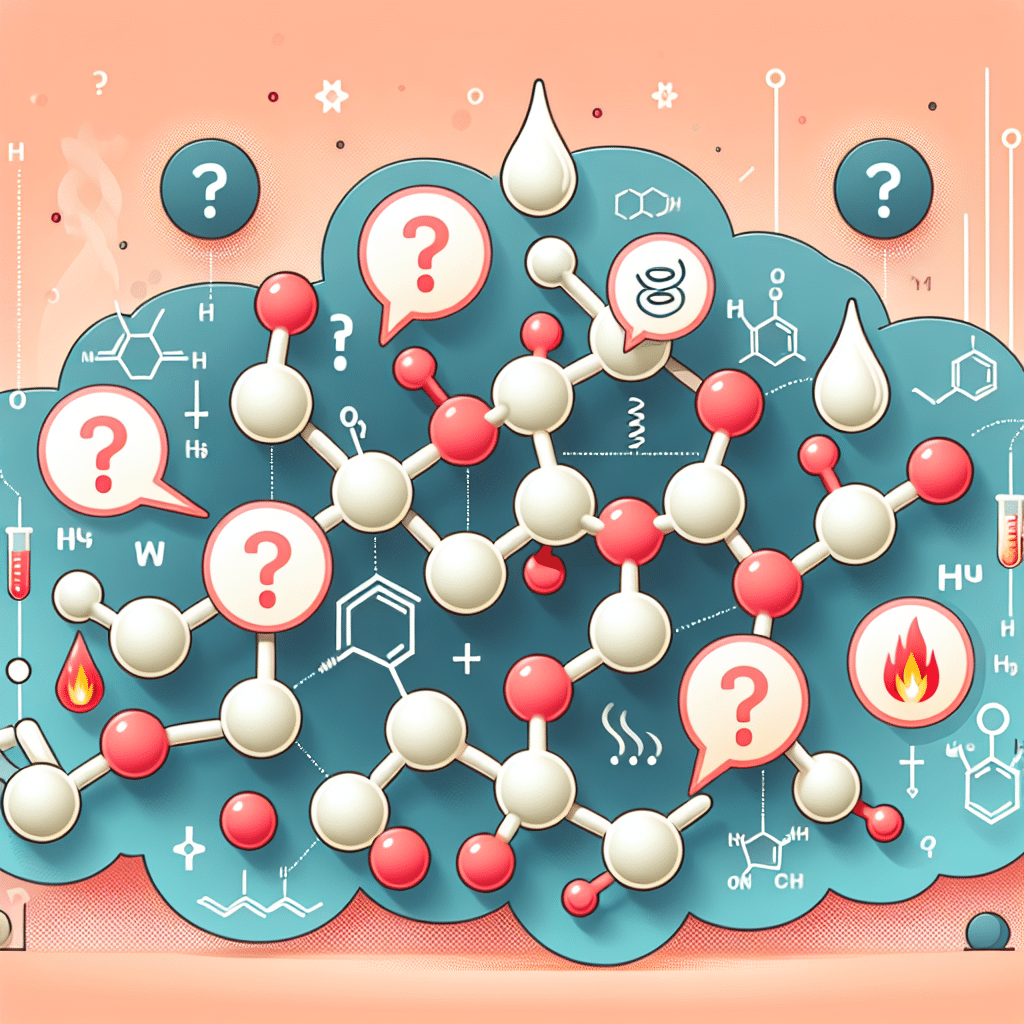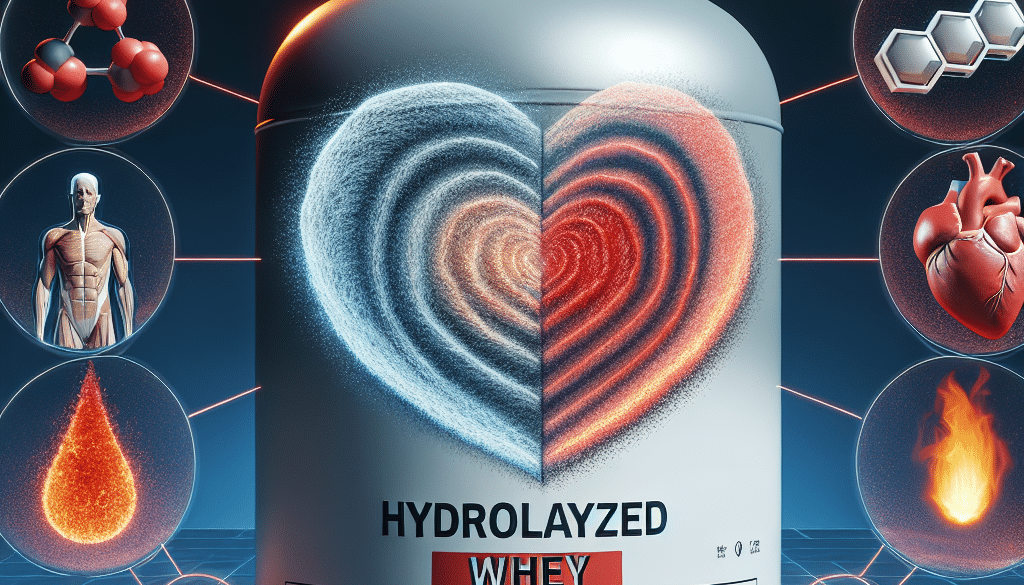Is Hydrolyzed Whey Inflammatory? Discover More
Table of Contents
- Hydrolyzed Whey Protein: Inflammatory or Beneficial for Health?
- Understanding Hydrolyzed Whey Protein
- The Inflammatory Response and Protein Consumption
- Is Hydrolyzed Whey Protein Inflammatory?
- Case Studies and Anecdotal Evidence
- Quality and Purity of Hydrolyzed Whey Protein
- Hydrolyzed Whey Protein and Exercise-Induced Inflammation
- Conclusion: Balancing the Evidence
- ETprotein: Your Trusted Source for High-Quality Protein Products
Hydrolyzed Whey Protein: Inflammatory or Beneficial for Health?

Whey protein is a popular dietary supplement widely used for muscle building, weight loss, and overall health improvement. Among its various forms, hydrolyzed whey protein is often touted for its enhanced digestibility and reduced allergenic potential. However, there is an ongoing debate about whether hydrolyzed whey protein can cause inflammation or if it actually offers anti-inflammatory benefits. This article delves into the scientific evidence to explore the inflammatory response associated with hydrolyzed whey protein consumption.
Understanding Hydrolyzed Whey Protein
Before we examine the inflammatory potential of hydrolyzed whey protein, it’s essential to understand what it is and how it differs from other forms of whey. Whey protein is a byproduct of cheese production and comes in three main forms: concentrate, isolate, and hydrolysate.
- Whey Concentrate: Contains a lower percentage of protein and higher amounts of lactose and fat.
- Whey Isolate: Higher in protein content, with most of the lactose and fat removed.
- Whey Hydrolysate: Pre-digested form of whey protein that has undergone hydrolysis, breaking down the protein into smaller peptides for easier absorption.
Hydrolyzed whey protein is often recommended for individuals with digestive issues or lactose intolerance due to its reduced allergenic components and rapid absorption rate.
The Inflammatory Response and Protein Consumption
Inflammation is the body’s natural response to injury or infection, but chronic inflammation can lead to various health issues, including heart disease, diabetes, and obesity. Diet plays a crucial role in modulating inflammation, with certain foods exacerbating it and others providing anti-inflammatory effects.
Is Hydrolyzed Whey Protein Inflammatory?
The question of whether hydrolyzed whey protein is inflammatory is complex and depends on several factors, including individual health conditions, the quality of the whey, and the presence of additives or contaminants. Some studies suggest that whey protein, in general, may have anti-inflammatory properties.
- A study published in the Journal of the American College of Nutrition found that whey protein supplementation reduced several markers of inflammation in overweight individuals.
- Research in the Antioxidants & Redox Signaling journal indicated that the lactoferrin component of whey protein could have anti-inflammatory effects.
However, these studies do not specifically focus on hydrolyzed whey protein. The process of hydrolysis itself is unlikely to introduce inflammatory properties, but individual responses can vary.
Case Studies and Anecdotal Evidence
While scientific research provides valuable insights, case studies and anecdotal evidence can also shed light on the effects of hydrolyzed whey protein on inflammation. Some individuals report improved digestion and reduced bloating when switching from regular whey to hydrolyzed whey, which could indirectly reduce inflammation associated with gastrointestinal distress.
Quality and Purity of Hydrolyzed Whey Protein
The quality and purity of hydrolyzed whey protein are critical factors in determining its inflammatory potential. Low-quality products may contain harmful additives, artificial sweeteners, or contaminants that could trigger an inflammatory response. It’s essential to choose high-quality, third-party tested hydrolyzed whey protein to minimize the risk of inflammation.
Hydrolyzed Whey Protein and Exercise-Induced Inflammation
Exercise can lead to acute inflammation due to muscle damage, and whey protein is often consumed post-workout to aid recovery. Some research suggests that whey protein, including hydrolyzed forms, may help reduce exercise-induced inflammation and support muscle repair.
- A study in the Journal of the International Society of Sports Nutrition showed that whey protein supplementation attenuated markers of muscle damage and inflammation following resistance exercise.
Conclusion: Balancing the Evidence
In conclusion, the current body of scientific evidence does not support the notion that hydrolyzed whey protein is inherently inflammatory. On the contrary, it may offer anti-inflammatory benefits, particularly in the context of exercise recovery and certain health conditions. However, individual responses can vary, and the quality of the whey protein product is paramount.
Key takeaways include:
- Hydrolyzed whey protein is a pre-digested form of whey that is rapidly absorbed and may be less allergenic.
- While diet can influence inflammation, high-quality hydrolyzed whey protein is not likely to be inflammatory and may have anti-inflammatory properties.
- Choosing a reputable, high-quality hydrolyzed whey protein product is crucial to avoid additives and contaminants that could cause inflammation.
- Individual responses to hydrolyzed whey protein can vary, and those with specific health conditions should consult with a healthcare professional.
ETprotein: Your Trusted Source for High-Quality Protein Products
If you’re looking for a reliable source of high-quality hydrolyzed whey protein, consider ETprotein. Their commitment to purity and quality ensures that you receive a product that not only supports your fitness goals but also aligns with your health and wellness needs.
ETprotein offers a range of protein products that cater to various dietary preferences and requirements. Whether you’re interested in organic plant-based options or high-grade hydrolyzed whey protein, ETprotein has you covered. Their products are designed with your health in mind, ensuring that you can enjoy the benefits of protein supplementation without the risk of inflammation.
For more information or to sample their products, please contact ETprotein and email sales(at)ETprotein.com today.
About ETprotein:
ETprotein, a reputable protein and L-(+)-Ergothioneine (EGT) Chinese factory manufacturer and supplier, is renowned for producing, stocking, exporting, and delivering the highest quality organic bulk vegan proteins and L-(+)-Ergothioneine. They include Organic rice protein, clear rice protein, pea protein, clear pea protein, watermelon seed protein, pumpkin seed protein, sunflower seed protein, mung bean protein, peanut protein, and L-(+)-Ergothioneine EGT Pharmaceutical grade, L-(+)-Ergothioneine EGT food grade, L-(+)-Ergothioneine EGT cosmetic grade, L-(+)-Ergothioneine EGT reference grade and L-(+)-Ergothioneine EGT standard. Their offerings, characterized by a neutral taste, non-GMO, allergen-free attributes, with L-(+)-Ergothioneine purity over 98%, 99%, cater to a diverse range of industries. They serve nutraceutical, pharmaceutical, cosmeceutical, veterinary, as well as food and beverage finished product distributors, traders, and manufacturers across Europe, USA, Canada, Australia, Thailand, Japan, Korea, Brazil, and Chile, among others.
ETprotein specialization includes exporting and delivering tailor-made protein powder and finished nutritional supplements. Their extensive product range covers sectors like Food and Beverage, Sports Nutrition, Weight Management, Dietary Supplements, Health and Wellness Products, and Infant Formula, ensuring comprehensive solutions to meet all your protein needs.
As a trusted company by leading global food and beverage brands and Fortune 500 companies, ETprotein reinforces China’s reputation in the global arena. For more information or to sample their products, please contact them and email sales(at)ETprotein.com today.














